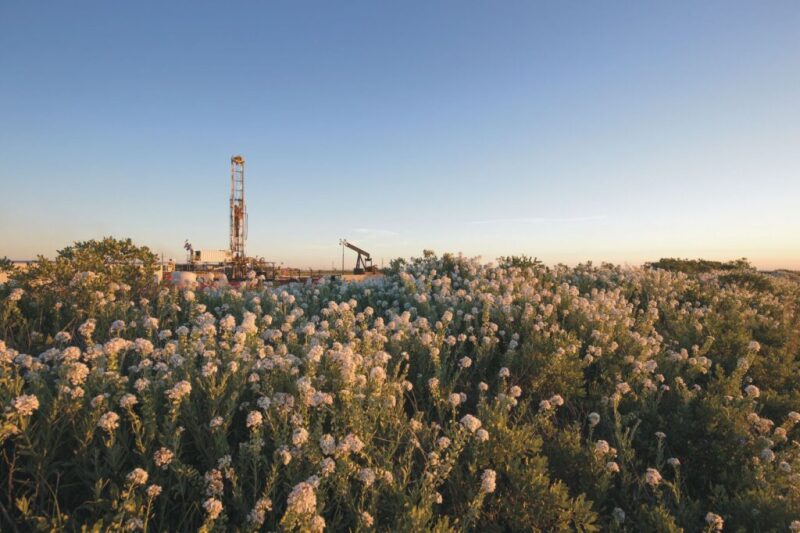The prolific Permian Basin of southeast New Mexico and west Texas will soon be home to a new research lab focused on advancing energy research and deployment, educating the next generation of energy professionals, and supporting energy-intensive communities.
The Permian Energy Development Lab (PEDL), launched by the Cynthia and George Mitchell Foundation (CGMF), is a two-state consortium that will build on the basin’s status as a center of the global energy economy.
The University of Texas at Austin is leading the consortium in partnership with six New Mexico and Texas universities, two national laboratories, and one advanced research center.
On 30 March, the consortium representatives signed a Memorandum of Understanding (MoU) establishing their participation in PEDL.
Participating institutions include:
- Midland College
- New Mexico State University
- New Mexico Tech
- Odessa College,
- The University of Texas at Austin
- The University of Texas at El Paso
- The University of Texas Permian Basin
- Sandia National Laboratories
- US Department of Energy’s National Renewable Energy Laboratory
- Houston Advanced Research Center
PEDL's scientific research and development efforts will focus on four primary areas: advanced energy, fuels, and integration; carbon and materials management; water, land, and agriculture; and economic development.
“The Permian Basin drives the global landscape of energy technologies, providing significant economic benefits to local communities in the region, the states of Texas and New Mexico, and the United States economy,” said Brian Korgel, Rashid Engineering Regents Chair Professor in the McKetta Department of Chemical Engineering and director of the UT Energy Institute. “Collaborating paves the road for future economic resiliency across the region and increased sustainability.”
The basin is a region known for surviving through the booms and busts of the petroleum market over the years.
A goal of PEDL is to help diversify the basin’s energy economy, adding resiliency to local economies as well as increase sustainability of financial models for the long-term future of communities impacted by the advanced energy transition, the MoU said.
PEDL said that its vision is to serve as an organization that could support facilities for technology development, performance testing, and professional training in a living-laboratory, real-world environment. Such facilities, it said, would enable new technologies to be established at the scale needed for true beta testing and evaluation, while assessing the potential impact on local and regional environmental resources.
“The Permian Energy Development Lab will ensure the region drives the global landscape of energy technologies,” said Marilu Hastings, chair of the UT Energy Institute Advisory Board and executive vice president of CGMF. “The Permian has the resources, know-how, and workforce to ensure success. Working as partners, we will position Texas and southeast New Mexico to win the race to build the world’s next-generation energy technologies.”
In addition to launching PEDL, the CGMF continues to incubate it. The foundation established the Mitchell Innovation Lab in 2020 to focus on emerging issues and develop a portfolio of breakthrough sustainability ideas and opportunity areas to develop, seed, and incubate. PEDL is the Mitchell Innovation Lab's first initiative.
PEDL will formally roll out in October 2023.


